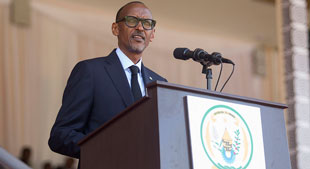
A new era of virtual universities is revolutionising learning in Africa, through accessible, tech-driven platforms.
SPECIAL FEATURE | BIRD AGENCY | West Midlands Open University (WMOU) is Nigeria’s first private virtual institution to “go live”, part of wave of openings that is sweeping the continent. The country’s National University Commission granted Lagos-based WMOU the green light to offer degree programs virtually.
According to Adebayo Akande, the institution’s founder, “WMOU will catalyse national development and global competitiveness by utilising sustainable technologies and high quality programs to provide training and education.”
On a continent where smartphone adoption and affordable internet access is changing lives, education startups and institutions are are capitalising on these advancements in communications to bring tertiary education to both urban and rural populations.
While traditional universities have widely incorporated virtual courses into their offerings, the new trend is for open universities employing virtual, distance, and open learning models, in an effort to satisfy demand in an education market that is soaring, particularly among young people.
Many students are already choosing virtual alternatives over traditional on-site learning. Nigeria’s public National Open University of Nigeria, for example, boasts over 106,000 learners, twice the number of the country’s largest physical university, the University of Lagos (UNILAG).
The COVID-19 pandemic led to a surge in virtual learning adoption across Africa, and this trend continues to gain appeal in the education sector.
According to Bola Mohammadu, a tertiary education expert and scholar, virtual learning aligns with the economic needs of many students on the continent, allowing learners to pursue their dream courses while working, creating a more flexible educational experience.
A 2020 World Bank report highlights that only about 9.4% of Sub-Saharan Africa’s tertiary education-age group enrols in programs, compared to the global average of 38%. This disparity, according to experts, can be narrowed by the rise of virtual and distance learning institutions.
Moreover, with the economic challenges being experienced globally, public universities are finding it increasingly difficult to expand their services, according to Egara Kabaji, a Kenya-based tertiary education expert.
“It becomes difficult for governments to comfortably fund institutions.
“That is why institutions will try to mobilise funds through opening up many colleges for instance, but still gaps exist,” he explained.
Private education funders and organisations – particularly Edtech startups – are seeing this as an an opportunity and governments are also recognising that private funding can help them too.
The Open University of Kenya – a private-public partnership – is set to open in September 2023.
According to a recent report by a presidential working committee on education, the institution will leverage flexible entry criteria and cutting-edge technologies to expand access to university education cost-effectively.
“The open university of Kenya is the best bet for Kenya,” Kabaji said, explaining that online universities also offer opportunities to foreign students.
“It offers an opportunity for internationalisation as it attracts students from anywhere in the world,” he said.
Open universities are not exclusively new in Africa, with the Association of African Universities listing seven universities that are open, and virtual – spread through Gambia, Mauritius, Zimbabwe, Nigeria, Tanzania and Zambia.
Some African traditional “open” universities, such as the University of South Africa (Unisa), which opened its doors as a correspondence university over a century ago, have grown to achieve global success in their course offerings – now offered virtually.
At more than 150 years old, Unisa boasts of global coverage of over 130 countries and a student body of nearly half a million every academic year.
The latest Webometrics ranking – a global ranking Web of Universities – ranks it among the top 800 universities in the World and the top ten best universities in Africa.
Pan-African agencies are also promoting the rise of open and virtual universities. The African Union’s Pan-African Virtual E-University and the African Virtual University, for example, are both promoted by the World Bank.
******
bird story agency
 The Independent Uganda: You get the Truth we Pay the Price
The Independent Uganda: You get the Truth we Pay the Price


